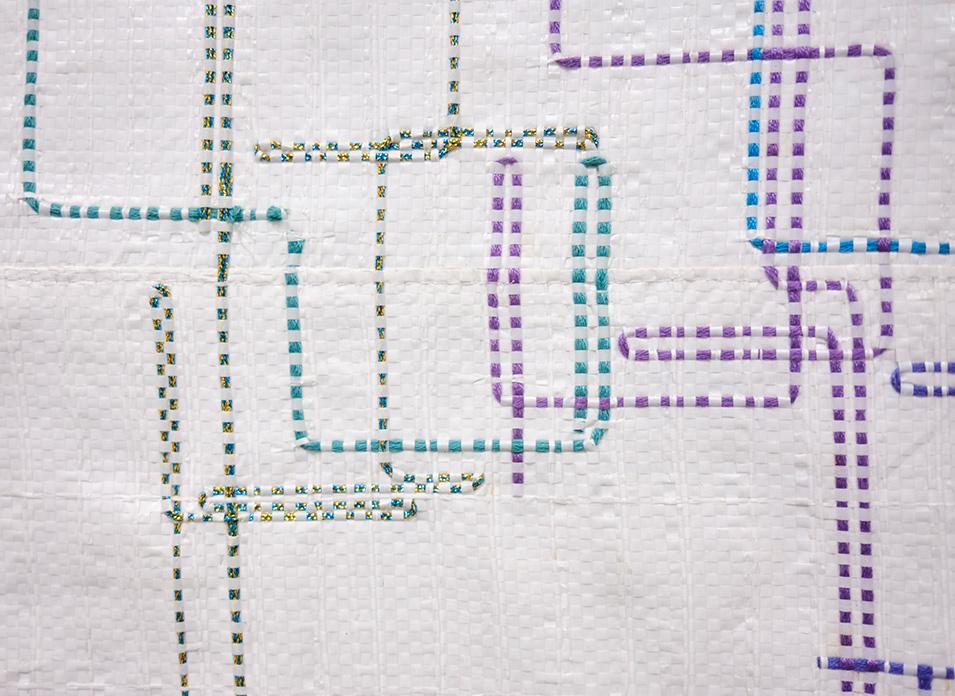In episode 004 of the Inspired Flight podcast, we speak with Aristote Mago (he/him), a Visual Artist, Activist and Seed Awardee from the Democratic Republic of Congo who mainly works with textiles.
Coming from a family that made living by trading at a local market, the main themes of his work are import and export. He reviews the business codes imposed by multinationals trading with Africa’s resources and African society in general.
Aristote speaks to us at contemporary art festival Unfair22 about his creative journey and representation in the art scene.
LISTEN TO ARISTOTE’S INTERVIEW ON SPOTIFY (IN FRENCH)
LISTEN TO ARISTOTE’S INTERVIEW ON APPLE PODCASTS (IN FRENCH)
READ THE ENGLISH TRANSLATION OF ARISTOTE’S INTERVIEW
IN CONVERSATION AT UNFAIR22
Last summer, contemporary artists from the Netherlands and around the world came to Unfair22, an Amsterdam-based festival on a mission to cultivate crowd-sourced collections and contribute to a fair art community.
Five of the artists exhibiting were recipients of the Prince Claus Seed Awards.
The Seed Awards, an initiative by the Prince Claus Fund, are designed to address the specific needs of emerging creatives in the early stages of their careers by giving cultural practitioners €5,000 to invest in their artistic practice and give visibility to their work.
Invited by Unfair to exhibit at the Inspired Flight booth, the Seed Awardees showcased their work and met face-to-face with visitors and art buyers.
As part of the Inspired Flight series, in collaboration with the Prince Claus Fund, TQTB interviewed recipients representing Bangladesh, Belarus, Brazil and the Democratic Republic of Congo about their artistic journeys, representation in art and the message behind their work for the Inspired Flight podcast.
It’s here that we met Aristote.
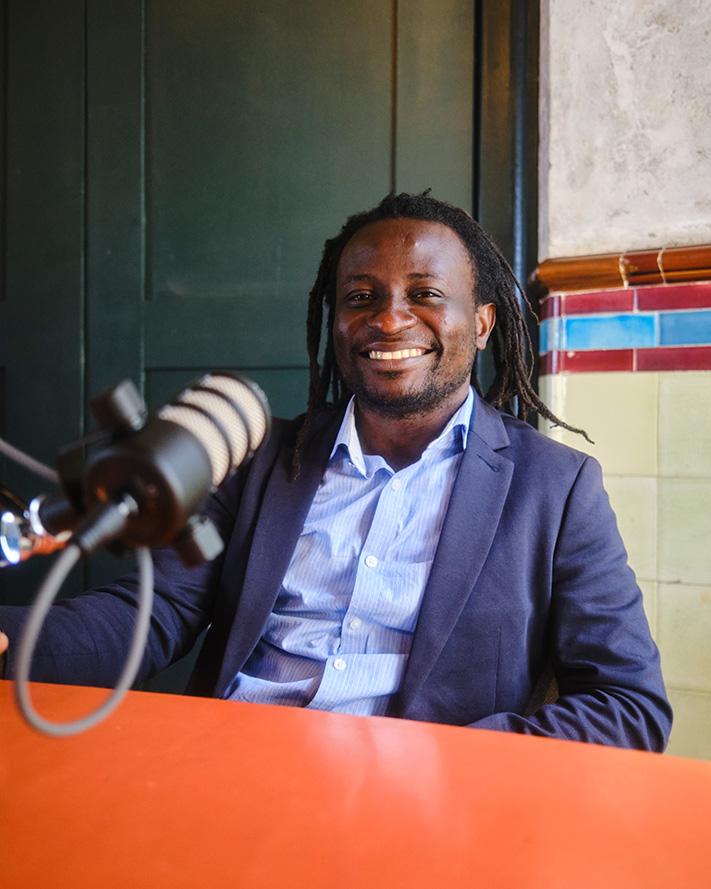
MEET ARISTOTE MAGO
Aristote Mago (he/him) is a Visual Artist from the Democratic Republic of Congo who mainly works with textiles. Coming from a family that made living by trading at a local market, the main themes of his work are import and export. He reviews the business codes imposed by multinationals trading with Africa’s resources and African society in general.
As someone passionate about art from a young age, Aristote believes that you don’t become an artist but you’re born to be one.
He honed his skills at several institutions including the Institute of Fine Arts in Kinshasa and the Academy of Fine Arts in Congo.
It was after finishing his studies that he found his true calling as an artist.
“I was a sculptor by training. When I came of age… I said no, my story is interesting. I have to recharge my batteries and reconnect to it.”
Seeing the locals’ daily struggle to survive and having to fight hard to support his own family, Aristote decided to use art to challenge the notion of ‘business as usual’.
“I am part of the African continent, where several multinationals come to do their trading, especially the import and export of raw materials. [They] take materials and leave with them, while Africa remains poor. The population is suffering.”
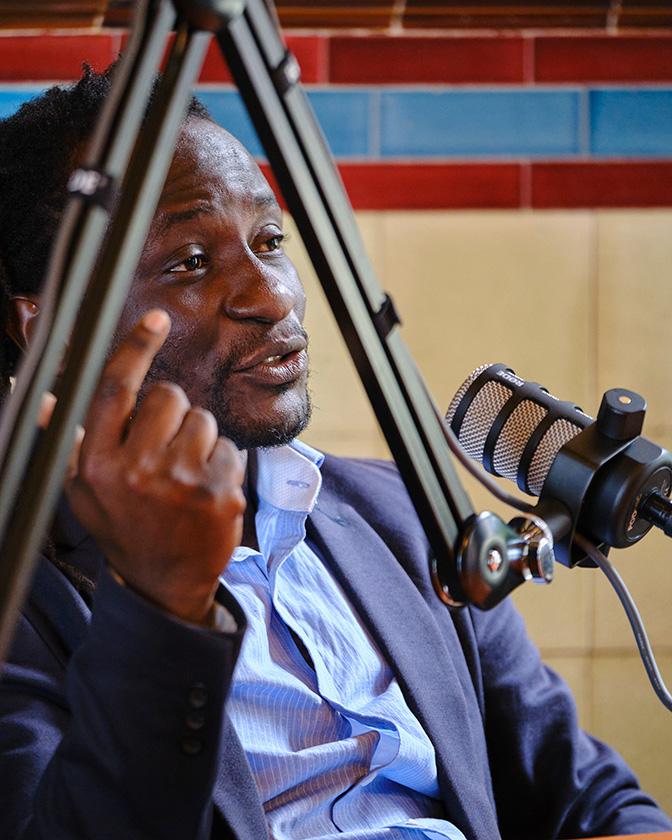
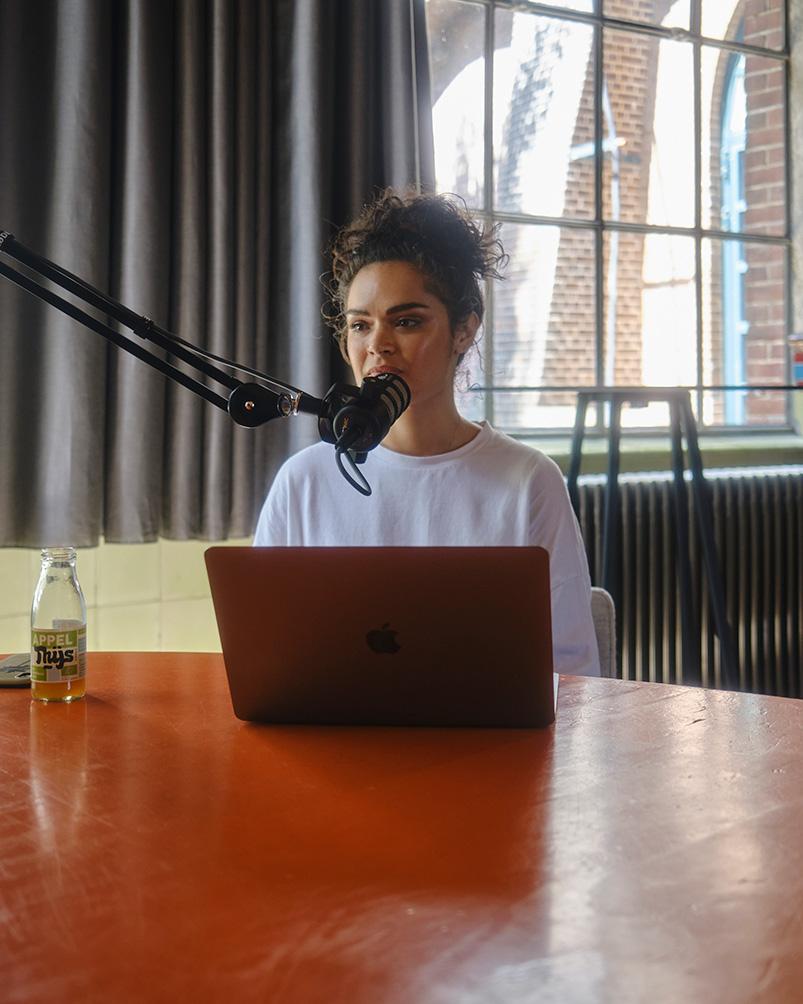
With his work he wants to raise the alarm so that the whole world knows that “we Africans are aware that the materials belong to us and that we must be the first to benefit from them.”
His works were presented at the AKAA fair in Paris as part of their ongoing relationship.
Aristote’s installation at the Unfair22 addresses the imbalance of power between Africa and Europe that led to this status quo.
“Crushing Throne”, is a play featuring “a visual of a gentleman sitting in a chair next to which there are a few little chairs being toppled over.” The key message is “that there’s a spirit in place making sure that Africans are in the position they’re in today”.
The work titled “Effort” expresses that “there’s always another way in Africa… since survival is not always easy”.
That’s how he views life in general — people fighting every day to build the best possible life for themselves and their children.
“Unless you’re extending your hand, that hand that gives you is always dominant over yours.”
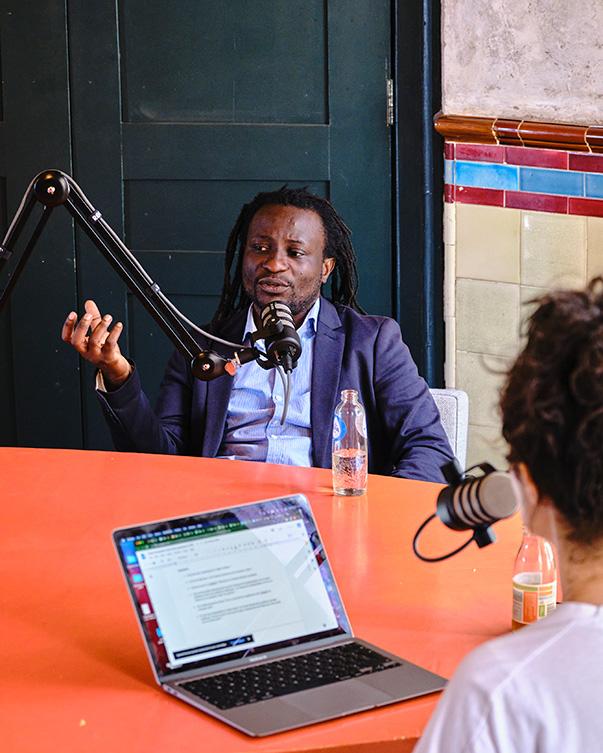
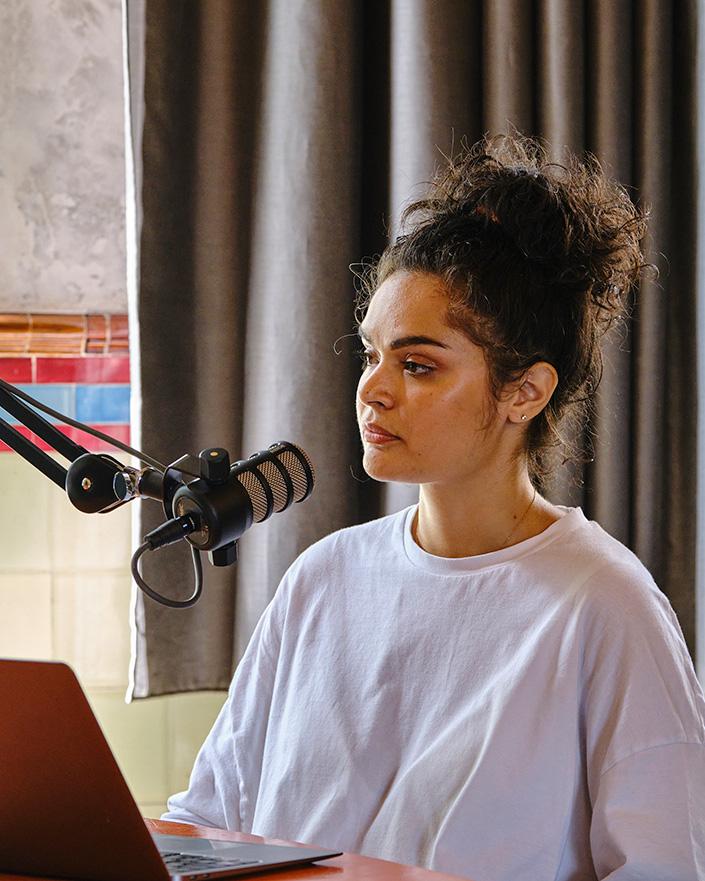
Coming from the Democratic Republic of Congo, he feels things have actually changed for the better in terms of representation and support for local artists.
“The institution I entered, Kin ArtStudio, is run by Mwilambwe Bondo, an alumni of the Academy based here in Holland. This spirit has, in itself, revolutionised a lot of things. Now, we have a fairly normalised space for creation.”
Committed to reclaiming the space for Congolese art, Aristote decided to present his works exclusively at local institutions.
“I never exhibited at the French Institute which was a space of dreams for Black artists like me.”
This approach brought him all the way to Unfair22 – he discovered and applied for the Prince Claus Fund Seed Awards via Kin ArtStudio, a Congolese institution where he is currently based.
Here, together with other resident artists, Aristote mentors art students and organises projects designed to highlight the local talent. The Seed Award he received went towards this initiative.
“Young Congo”, an exhibition they hosted in 2017, brought together Congolese artists living in the country and in the diaspora. Following a great reception they expanded and two years later, the first “Congo Biennale” took place.
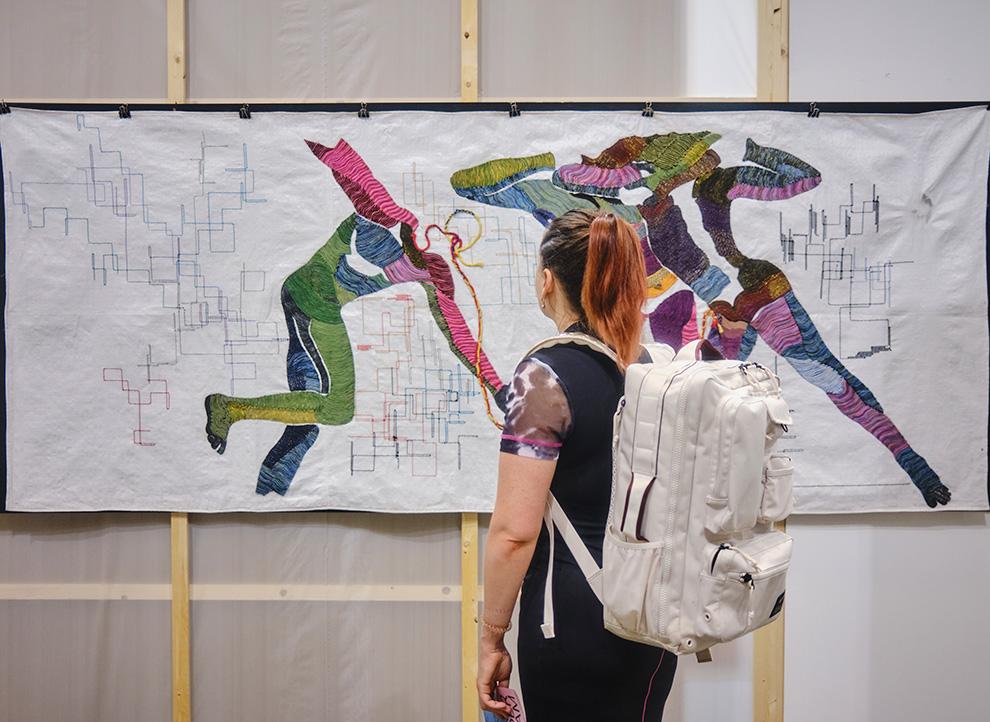
The event was sponsored by the first student of the Academy of Fine Arts in Kinshasa.
The second edition took place in September and October 2022. 2,500 copies of the catalogue for the event was produced by the local team, which was another part of Aristote’s vision falling into place.
“I am proud to be able to write this catalogue with our own eyes, our own identity, as I would like us to be represented in the world.”
Aristote appreciated the experience at Unfair22, particularly being able to be present during the construction of the stand.
“It’s a very beautiful experience for my memory, my career. My name will be inscribed in the thoughts of the Dutch. They understood the codes and developed their reflections by decoding the numbers and elements that were in my paintings.”
Using art as a universal language, Aristote wants the audience to understand the seriousness of the situation in terms of protecting the environment and his motherland’s exploitation.
He believes that “Africa must develop on its own”.
WHEN IDEAS TAKE INSPIRED FLIGHT
Listen to the podcast on Spotify
Listen to the podcast on Apple Podcasts
Discover more Inspired Flight stories
Follow Aristote Mago: @aristotemagofficiel
IN PARTNERSHIP WITH
CREDITS
Creative Direction and Production: Marie-Anne Leuty + Obi Mgbado
Junior Art Directors: Shariefa Kasimbeg + Ra’iesa Kasimbeg
Production Assistants: Barbara Murunga, Korianne Muya, Claire Séry, Richela Hodgi + Taylor Early
Sound Technician: Alex Preda
Introduction music produced by: Hannah Rojer
Photography and edits: Obi Mgbado
Words: Nina Camara

